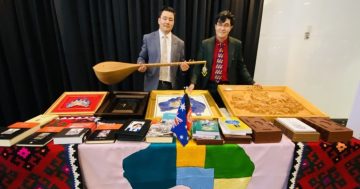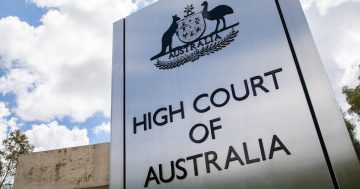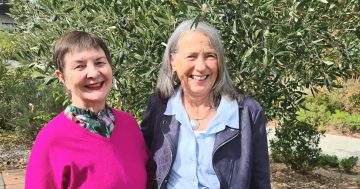
Australian soldiers on foot patrol with the International Security Assistance Force mission in Tarin Kowt. Photo: File.
Canberra’s Afghan community, many of whom are refugees from the Hazara minority, are watching with horror as the resurgent Taliban conquers their homeland.
There have been chaotic scenes at Kabul’s Hamid Karzai Airport after Taliban forces swept through the national capital in a matter of days following US troop withdrawals. An urgent and highly risky Australian Defence Force mission is underway to evacuate Australians and Afghans.
Region Media spoke to a local Hazara who has been in Australia since 2012 but asked not to be named, given his refugee status and the risks for family and friends in Afghanistan.
There are about 300 Afghan families in Canberra, most with family members still in the country. Around a quarter are Hazaras, a frequently oppressed minority in the Pashtun-dominant nation. Many arrived in Australia after fleeing persecution by the Taliban and are settled here on temporary protection visas.
“Afghanistan is no longer a safe place, but it was not safe for the past 20 years after various Western invasions. This has proved that there is no fight against the Taliban you could win. It was only a matter of time”, he said.
Canberra’s Afghan population are highly anxious, the source says, and particularly distressed at the decision to withdraw US and Australian troops before the safety of local staff working alongside the ADF could be assured.
“They should have been more careful what they do. They should know what the effects will be for people living there who have helped Australia. People feel like they have been left behind by the government, and their efforts were not appreciated.
“You could help someone for 20 years throughout their mission, but in a matter of time, they leave you behind. What do you have? Do you have the resources to fight against the Taliban? It’s overwhelming and frustrating and so distressing.”
There’s also doubt over whether the Taliban’s efforts to differentiate themselves from the past are genuine.
“I think that’s just politics, allowing women to go outside and study. If you’re allowing them to do that, why won’t you let women hold positions of power within the Taliban?” the local source asks.
“How many women are there in the Taliban in leadership roles?
“If you’re allowing women to study, why not let them wear whatever they like? It’s for show, for Western countries to see they are not the same as 20 years ago. The Taliban are not stupid. But that more modern image is not true, in reality.”
Thousand of Afghans are in Australia on temporary protection visas. If these are not renewed on a three-yearly basis, the visa holders can, theoretically at least, be returned to their country of origin.
“[Local Afghan refugees] have no sense of hope,” the source says. “They have been here for nine years, and the process takes far too long for people who are escaping persecution and have proved they are refugees.
“They have no certainty about their future. If they were permanent residents or citizens, they could have brought their families out, and they wouldn’t be dealing with the Taliban.”
A combination of deep uncertainty about their migration status, fear about their families in Afghanistan and employment vulnerability due to the pandemic have created immense stress for many in the local community. COVID-19 is also raging through Afghanistan, although locals say most people are more worried in the short term about being killed by the Taliban than dying of the virus
Companion House provides counselling, medical and immigration services to people who have sought asylum after escaping war zones. Find out more about their work here.





















